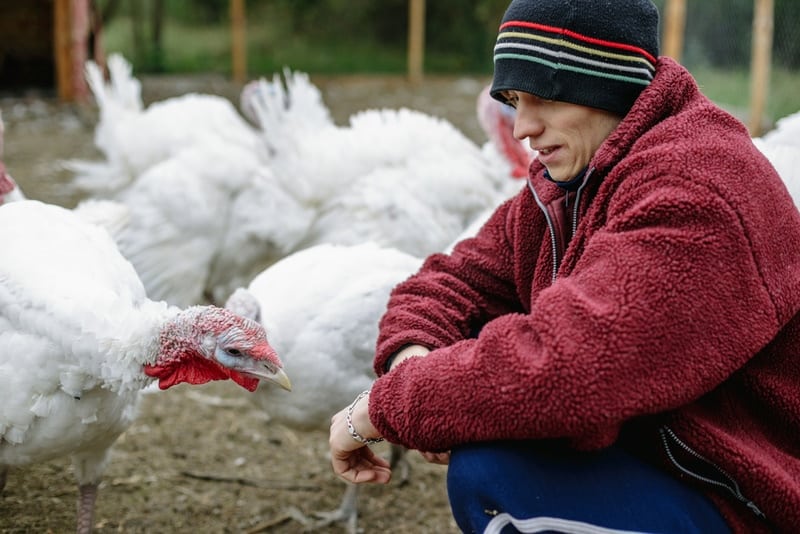Raising turkeys is an admirable goal for an ambitious homesteader. While chickens are an excellent everyday protein, nobody can deny that bringing turkey to the table marks a special feasting occasion. It’s an intriguing challenge but one you’ll surely enjoy as soon as you get to know these colorful creatures.
Although there are similarities to raising chickens, turkeys have plenty of unique needs to consider, from the size of their run to the quality of their feed. To ensure you have the proper setup before your poults arrive from the hatchery, we’ll break down the 11 essential turkey-raising supplies you’ll need for happy and healthy birds.
Click to Skip Ahead:

Food and Feeding Supplies
1. Feeder
- Our Choice: Harris Farms Free Range Hanging Poultry Feeder
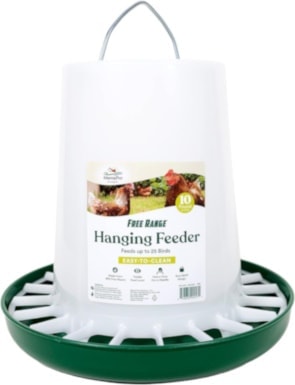
A feeder is a simple holder for your turkeys’ crumbled diet that you supply in their brooder and outdoor living area. Provide enough feeders to give each turkey space to move and eat comfortably, usually at least 1 inch of space for poults and 3 inches for mature turkeys.
A hanging feeder is ideal as you can put it at a convenient height and prevent contamination from the ground, or you can use a free-feeding trough with guards.
The Harris Farms Free Range Hanging Poultry Feeder is a heavy-duty plastic circular feeder that can accommodate up to 25 birds. The sturdy hanging handle offers confident placement, and the easy-open feed chamber gives you visibility into the feed levels so you can quickly add more as needed.
2. Waterer
- Our Choice: Little Giant Plastic Poultry Fountain
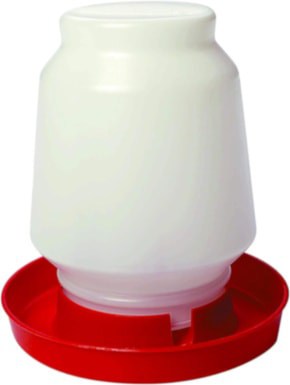
Turkeys need fresh, lukewarm water daily, ideally offered in a waterer away from the heat lamp and elevated off the ground to keep bedding and poult feet out. After a few days, you can add electrolytes and vitamins to boost your turkeys’ immunity.
Poults sometimes need help adjusting and staying safe with the waterer. Many people gently dip the turkeys’ beaks into the water to introduce them to the process. To prevent accidental drowning, you can add marbles to make the water shallower. Monitor your turkeys’ drinking habits to get a waterer you only need to fill once daily.
An excellent starter fountain is the Little Giant Plastic Poultry Fountain; it’s an affordable piece that will reliably keep your young birds hydrated. The gravity-fed, heavy-duty plastic holder resists damage from the elements, making daily refills quick and hassle-free.
3. Game Bird or Turkey Starter
- Our Choice: Homestead Harvest Non-GMO Turkey & Game Bird Starter
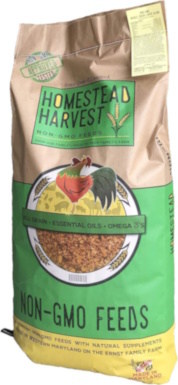
Turkeys need more protein than chicks during their first 6 weeks, requiring 28% in their feed. Free feeding is typically allowable with frequent monitoring, depending on the turkey breed, and using a few feeders may be necessary to give all the poults at least an inch or two of individual space. After about 8 weeks, you can switch to grower crumbles featuring less protein yet still a healthy nutritional and caloric load.
Homestead Harvest Non-GMO Turkey & Game Bird Starter is a complete ration, boasting the optimal protein level, non-GMO grains, and omega 3s in a homemade blend. Other ingredients include diatomaceous earth, essential oils, and vitamins and minerals to strengthen your turkeys’ biological defenses and promote proper development.
4. Grit
- Our Choice: Manna Pro Chick Grit
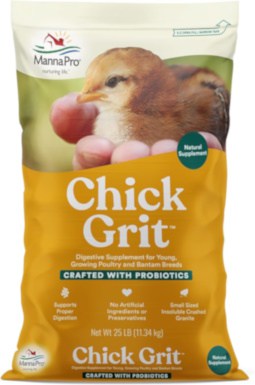
Lacking teeth, turkeys need grit to help them process their diets. Small, insoluble materials like sand help break down food for proper nutrient uptake. A turkey typically can eat about 1/5th of their diet in grit. While a turkey starter isn’t always necessary, you’ll need to add grit after about a month, particularly when your turkeys begin using the pasture.
Manna Pro Chick Grit offers a safe and effective grit by focusing on simplicity. The crushed granite pieces include probiotics to promote healthy digestion without supplying excessive calcium, which is an essential nutrient for older turkeys that can be detrimental to poults.

Brooder Supplies
5. Brooder
- Our Choice: CheeFun Chicken Brooder Start Kit
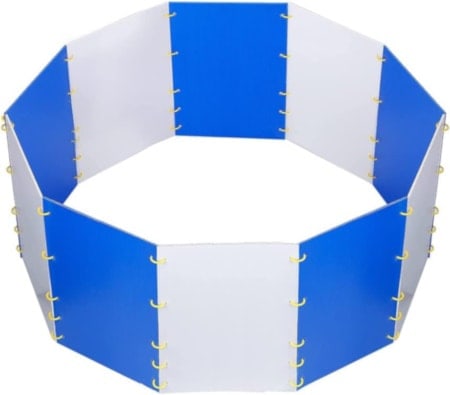
The brooder is the home for your turkey during their first 6–8 weeks of life as they grow their insulating feathers. Each turkey needs at least a square foot of space, bumping up to at least 2 square feet at around 6 weeks. Brooder boxes should be well-ventilated to keep the litter dry and preferably rounded at the corners to keep turkeys from piling onto each other.
Anything can work for a suitable brooder, including a plastic tote bin or a large cardboard box. The CheeFun Chicken Brooder Start Kit is an inexpensive and multi-functional box for a few young turkeys. The hinged walls allow for various sizes and shapes to suit your brooder setup, number of turkeys, and available space.
6. Bedding
- Our Choice: Manna Pro Fresh Flakes
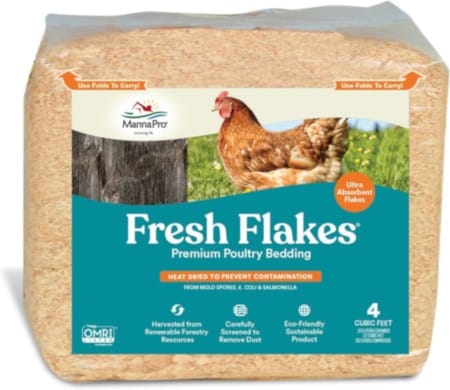
Dry litter in the brooder will keep your turkeys satisfied and prevent injury from abrasion or impact, helping to preserve the quality of their meat. The bedding should be soft, dry, dust-free, and about 2–5 inches thick. Turkeys don’t dig like chickens, and while that can make them cleaner in many ways, it also keeps them from turning their litter. You must turn it every 1–3 days to avoid contact with feces, adding more bedding as it breaks down.
Sand, hay, straw, and other non-slip materials make for practical bedding, but large wood shavings are ideal for their moisture absorbency and lack of dust. Manna Pro Fresh Flakes are a perfect fit, providing an eco-friendly, low-dust, and compostable foundation to make your poults comfortable.
7. Heat Lamp
- Our Choice: BONGBADA Heat Lamp Bulb
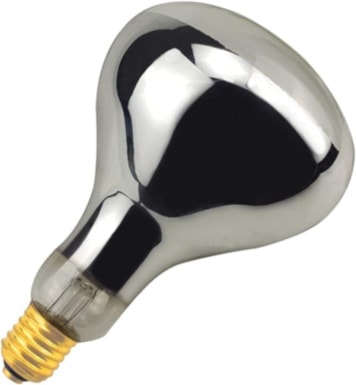
Poults need help staying warm as they wait for their feathers. A 125–250-watt heat lamp is essential in the brooding box to keep the turkeys at the appropriate temperature. A brooder plate, which lets chicks press their backs into a heated surface mimicking the mother’s warmth, is an alternative or supplemental option you can use if it won’t make your brooder too crowded.
You must adjust the heat as the turkeys grow by raising the bulb above the pen or changing the wattage. The bulb should start at least 18 inches away from the ground.
The BONGBADA Heat Lamp Bulb is a 250-watt infrared bulb rated for 5,000 hours of use. The waterproof and explosion-proof bulb supplies secure temperature control for continuous use as your poults mature to a pasture-ready size. The red shade emits lower light levels, potentially helping with sleep and keeping your poults relaxed and cooperative with one another.
8. Thermometer
- Our Choice: ThermoPro Digital Hygrometer Indoor Thermometer
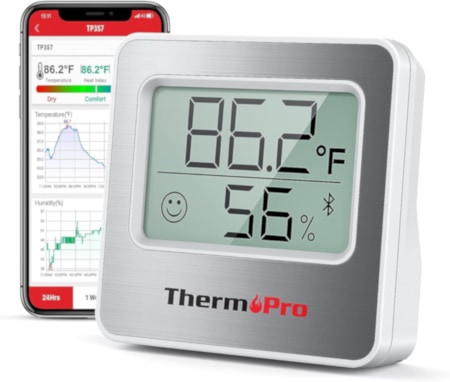
A simple thermometer should sit on the wall about 2–3 inches above the litter to keep you up-to-speed on the brooder’s temperature. The brooder should be at roughly 98°F for the first week. You will then decrease it by 5 degrees weekly for about 6 weeks, staying in lockstep with the turkeys’ feather development to maintain the proper body temperature.
The ThermoPro Digital Hygrometer Indoor Thermometer gives you all the information you need to keep your brooder comfortable. Setting it on the brooder box wall is easy, with a hanging mount hole and magnetic back offering two ways to set it up. A built-in Bluetooth function provides remote monitoring to conveniently check in on your poults and immediately respond to any issues with the climate.
9. Roosting Bar
- Our Choice: Petsfit Chicken Roosting Bar
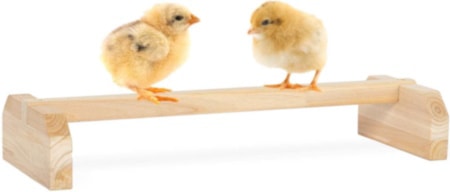
A roosting bar satisfies a turkey’s natural inclination to roost, providing safety and familiarity that will reduce stress and encourage better sleep. You’ll typically want to add a roosting bar to the brooder box at 3 weeks, elevating it about a foot off the floor.
DIYing a roosting bar isn’t a time-intensive or challenging undertaking for even a novice woodworker. They’re relatively inexpensive if you want to cut out the chore entirely. The Petsfit Chick Roosting Bar is a no-frills yet sturdy bar to give your turkeys a reassuring footing and inspire frequent use.

Outdoor Enclosures
10. Outdoor Housing and Run
- Our Choice: Polar Aurora Large Metal Coop
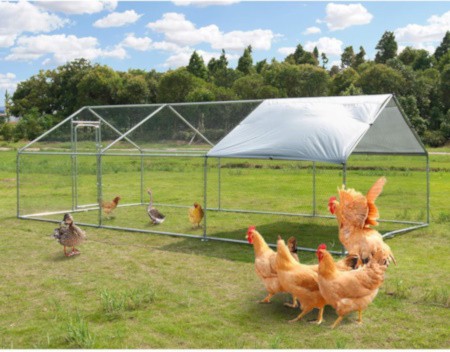
Turkeys are hardy creatures that allow for flexibility in the type of adult housing you provide. A portable coop is an easy option for many, giving turkeys the room to move, eat, lie in the shade, and sleep comfortably without fear of predation. Adult turkeys need much more space than poults, preferably about 10 square feet by the time they reach market weight.
A portable, easy-to-assemble package like the Polar Aurora Large Metal Coop offers comforting shade, security, and space for turkeys to live once they leave the brooder box. Options like these are convenient, but you may notice room to improve the protection. Some predators can squeeze through holes slimmer than a quarter and will quickly exploit any gaps around the floor, door, or ceiling. In most cases, you’ll have to apply extra mesh around weak points.
11. Fence
- Our Choice: RentACoop Electric Fence
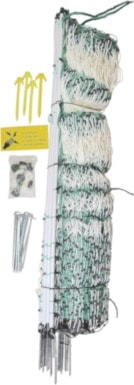
There isn’t too much involved in setting up the pasture for your turkeys other than ensuring the land is clean, secure, and bountiful. A fence is essential even if you plan to watch your turkeys while grazing to prevent them from running off or allowing a predator-free access. Electric options like the RentACoop enhance the protection. The solar-powered fence is easy to move and set up, with a rigid frame ensuring your birds are safe.

Is Raising Turkeys Worth It?
Raising turkeys is a satisfying experience, and the results will be far tastier than any store-bought turkey. Whether it’s valuable to you financially depends on the size of your operation, your market, and your ambition. If you only want delicious turkeys for family and friends to enjoy during the holidays, raising them will be less expensive per bird than buying from the store.
The initial investment can cost up to about $1,000, but you can save significantly by thrifting materials and getting creative with your brooder and outdoor setup. The feed will be the primary inescapable cost, and you’ll have to worry about the time investment and the possibility of poults dying in the early stages.
You can sidestep some of the challenges of raising day-old poults in your first few attempts by buying started turkeys. Turkeys a few weeks old will be costlier per bird, but they will also net you a greater chance of success and take less time to reach their market weight.

Conclusion
Turkeys are sensitive creatures in the early stages, requiring a sure setup to avoid accidental injury, illness, or discomfort. The prospect of raising them can seem imposing for beginners, but the excitement should outweigh any ambivalence. The essential turkey-raising supplies don’t have to be demanding to assemble, and you’ll be delighted you made the effort as soon as you take your first taste at Thanksgiving.
Featured Image Credit: Bearok, Shutterstock
